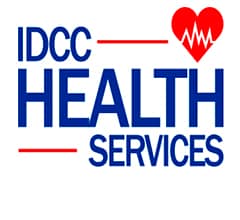Navigating the ups and downs of stomach health can be complex, with various factors from diet to stress playing significant roles. This comprehensive guide aims to demystify when stomach discomfort warrants a doctor’s visit, empowering you to make informed decisions about your health.
See a gastroenterologist in Brooklyn today for expert care. Book your appointment now!

Demystifying Stomach Discomfort
Stomach issues range broadly in severity and symptoms, including gas, bloating, heartburn, and more severe concerns like unexplained weight loss and persistent vomiting. Distinguishing between minor discomforts treatable at home and symptoms signaling a deeper health issue is crucial.
Recognizing Serious Symptoms
Certain symptoms should prompt an immediate call to the doctor, including:
- Continuous Vomiting: Vomiting persisting beyond a day, particularly if it contains blood, signals a need for medical attention.
- Bloody or Dark Stools: The appearance of blood in stools always merits a professional evaluation.
- Sudden Intense Abdominal Pain: Sharp, sudden pain could indicate critical conditions such as appendicitis.
- Significant Unintentional Weight Loss: Losing weight without trying can indicate an underlying health problem.
Impact of Lifestyle on Digestive Health
Lifestyle and diet play pivotal roles in stomach health, with poor habits often leading to discomfort. If lifestyle adjustments and dietary changes don’t alleviate symptoms, professional medical advice may be necessary.
Spotting Underlying Health Issues
Persistent or severe symptoms might hint at conditions requiring specialized care, such as GERD, ulcers, or gallstones. Early professional evaluation can prevent complications and guide appropriate treatment.
What to Expect at the Doctor’s Office
Be ready to discuss the specifics of your symptoms with your doctor, including their frequency, triggers, and any home remedies you’ve attempted. Based on your symptoms, your doctor might suggest further testing to pinpoint the issue.
Treatment and Management Strategies
The treatment for stomach issues varies based on the diagnosis and might include medications for infection or heartburn, recommendations for dietary adjustments, or even surgery for more severe conditions like gallstones.
Proactive Stomach Health Practices
Adopting healthy habits can significantly reduce the risk of digestive issues. Regular physical activity, a balanced diet, and stress management can all contribute to better digestive health.
Specialized Care for Complex Issues
For persistent or complex issues, a referral to a gastroenterologist may be necessary. Specialists can offer advanced diagnostics and treatment options tailored to individual needs.
Key Takeaway
Understanding when to seek medical help for stomach discomfort can protect your health and ensure timely treatment for serious conditions. Always prioritize professional medical advice for persistent or severe symptoms to ensure the best care for your digestive health.
